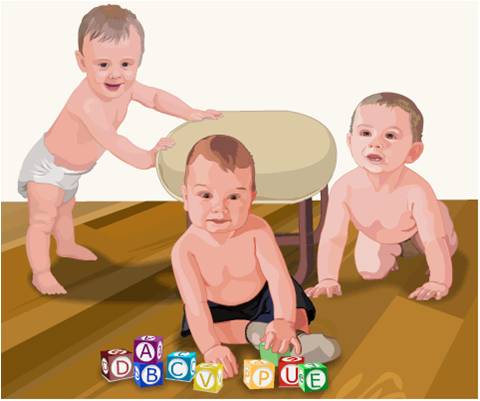Common Motor/Movement Problems Part 2: Motor Disorders course


This session concentrates on deviant motor developmental progress.
Learning objectives
By the end of this session you will be able to:
- Demonstrate knowledge in physical examination techniques required for assessment
- List ‘red flag’ signs for early detection of common motor disorders
- Explain how to access diagnostic services
- Outline investigations required for diagnosis of key motor disorders
Typical motor development in childhood has a wide range. Knowing this and being aware of typical and idiosyncratic motor development patterns is important.
This session concentrates on deviant motor developmental progress.
Before commencing this session, you should complete the following HCP sessions:
- 01_01 Introduction to the Healthy Child Programme (402-0001)
- 02_01 Communication and Record Keeping (402-0003)
- 02_02 Using Record Keeping to Promote Multi-agency Working (402-0004)
- 06_01 Introduction to Development Part 1: Description and Influences (402-0022)
Dr Jane Williams is a consultant paediatrician (community child health and neurodisability) at Nottingham University NHS Trust. Her interests include:cerebral palsy, acquired brain injury, and epilepsy.


Dr Elizabeth Marder is a consultant paediatrician at Nottingham University NHS Trust. Her interests include: Down Syndrome, autism, and pathway development.
- Anaesthesia Fundamentals | Anatomy | Mediastinum a...
- Posted By eIntegrity Healthcare e-Learning
- Posted Date: 2025-02-22
- Location:Online
- This session describes the contents, relations and anatomical divisions of the mediastinum.
- Anaesthesia Fundamentals | Anatomy | Microstructur...
- Posted By eIntegrity Healthcare e-Learning
- Posted Date: 2025-02-22
- Location:Online
- This session will cover the structure of the lungs and pleura at a cellular level. In particular there will be an emphasis on the structure and function relationships which allow gas exchange to occur.
- Anaesthesia Fundamentals | Anatomy | Trachea, Main...
- Posted By eIntegrity Healthcare e-Learning
- Posted Date: 2025-02-22
- Location:Online
- This session describes the structure, relations, blood and nerve supply of the trachea, carina, main bronchi and major bronchopulmonary segments.
- Anaesthesia Fundamentals | Anatomy | Anatomy of th...
- Posted By eIntegrity Healthcare e-Learning
- Posted Date: 2025-02-22
- Location:Online
- This session describes the anatomy of the oral cavity, pharynx and larynx. The nerve supply to the larynx and the implications of damage to these nerves is also described.
- Anaesthesia Fundamentals | Anatomy | Nasal Anatomy...
- Posted By eIntegrity Healthcare e-Learning
- Posted Date: 2025-02-22
- Location:Online
- This session focuses on the anatomy of the nose. It will also explore complications of nasal instrumentation, the functions of the nose, and its vascular and nerve supply.








